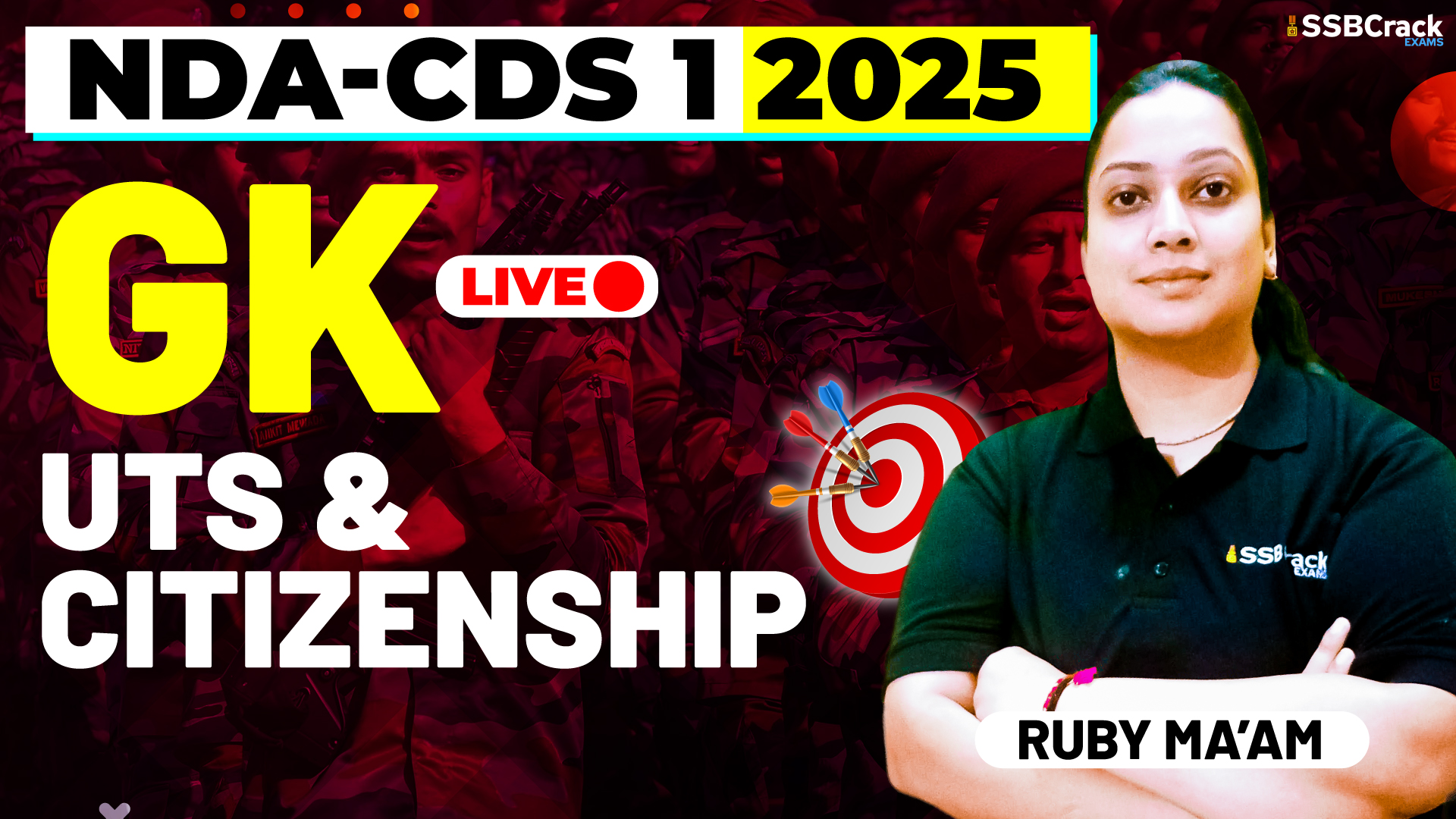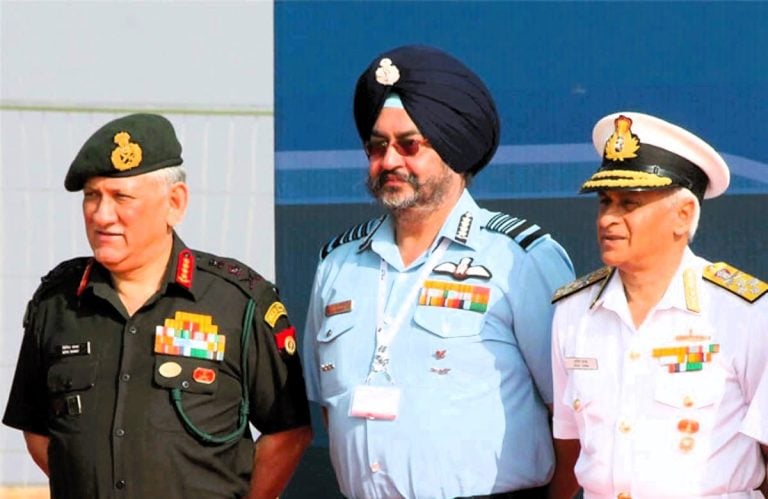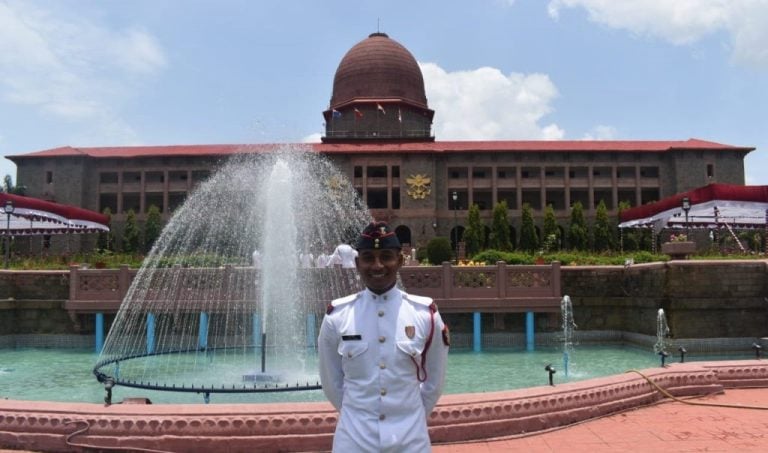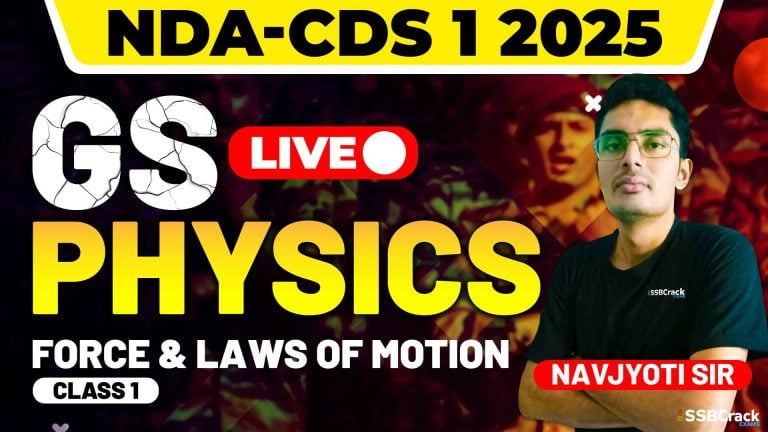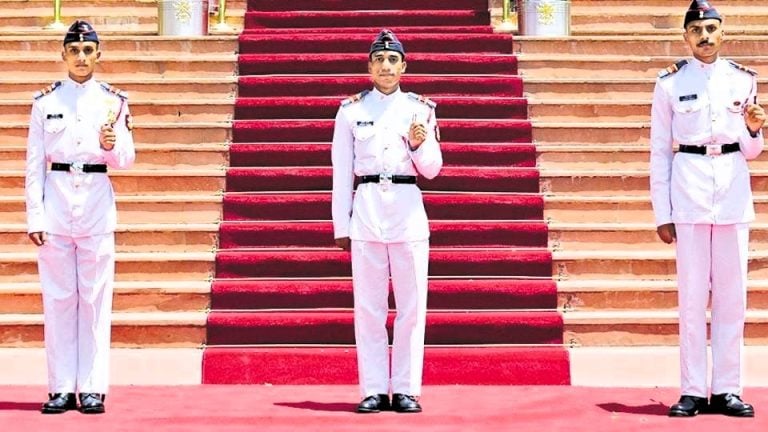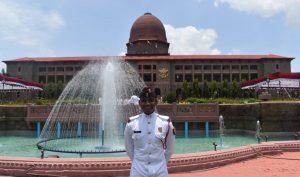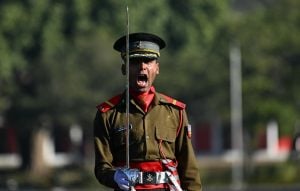For aspirants of the National Defence Academy (NDA) and Combined Defence Services (CDS), the journey towards becoming officers in the armed forces involves not only physical and leadership skills but also a sound understanding of key subjects, particularly those relating to the Constitution and governance. Polity, as a subject, holds immense significance for both exams, and one of the most critical chapters within it is Citizenship.
Here’s why mastering the Citizenship chapter in Indian polity is crucial for NDA and CDS aspirants:
1. Core Topic in the Exam
The Citizenship chapter forms a fundamental part of the polity syllabus for both NDA and CDS exams. Questions from this chapter are frequently asked because it touches upon essential constitutional provisions and the rights and duties of citizens. Knowing this chapter thoroughly ensures that aspirants can score well in the polity section, a key component of the General Knowledge paper.
2. Understanding Constitutional Provisions
The Constitution of India, particularly Part II (Articles 5 to 11), deals with the subject of citizenship. It covers the provisions regarding who is considered a citizen of India at the time of the commencement of the Constitution, acquisition and termination of citizenship, and the rights and privileges associated with it.
For an aspirant, it is vital to understand:
- Different types of citizenship (by birth, descent, registration, naturalization)
- How citizenship can be terminated (renunciation, termination, deprivation)
- Key amendments related to citizenship, such as the Citizenship Amendment Act (CAA).
3. National Security Perspective
Officers in the armed forces must have a deep understanding of citizenship laws because of the direct connection between citizenship and national security. For instance, issues relating to illegal migration, citizenship rights of refugees, and stateless persons can have significant implications for national integrity and security.
Furthermore, recent developments, such as the debate around the National Register of Citizens (NRC) and the Citizenship Amendment Act (CAA), have brought the citizenship debate to the forefront of public discourse. As future officers, NDA and CDS aspirants need to be well-versed in these matters to effectively manage civil-military relations and understand the socio-political environment of the country.
4. Key to Understanding Rights and Duties
Citizenship defines the relationship between an individual and the state. It determines the rights that a person enjoys as a citizen and the duties they must uphold. As aspirants preparing to serve the nation, understanding the rights and duties associated with citizenship goes beyond the academic requirement. It becomes a matter of personal and professional ethos.
For example, the Fundamental Rights (especially Articles 15, 16, and 19) and Fundamental Duties are directly linked to the concept of citizenship. These are areas where examiners often frame tricky questions to test the conceptual clarity of candidates.
5. Global Relevance and Comparisons
In addition to knowing Indian citizenship laws, NDA and CDS aspirants should also be aware of how citizenship operates globally. In a world where globalization, migration, and dual nationality have become common, understanding the distinctions between Indian citizenship and that of other nations provides a broader perspective on international issues.
For instance, questions might be asked comparing India’s single citizenship model with countries that follow dual or multiple citizenship models. Being prepared for such questions will not only help in the written exam but also in interviews and personality assessments where awareness of global political systems is tested.
6. Current Affairs Linkage
Many current affairs topics are directly linked to the Citizenship chapter. Issues like the Rohingya refugee crisis, asylum seekers, and debates over national identity have a basis in citizenship laws. Keeping up with such current events and understanding their legal background will not only help in clearing the General Knowledge section but will also enhance an aspirant’s overall comprehension of global and national security issues.
7. Moral and Ethical Dimension
As future leaders of the armed forces, it is essential to develop a strong moral compass. The Citizenship chapter deals with questions of national loyalty, allegiance, and the rights of individuals. Understanding these concepts deeply helps shape the ethical outlook of aspirants, fostering qualities like patriotism, responsibility, and dedication to safeguarding the rights of all citizens, which are key to becoming a respected officer.
How to Prepare for the Citizenship Chapter?
Here are a few tips for NDA and CDS aspirants on how to tackle this chapter effectively:
- NCERT Books: Start by reading the polity section from NCERT textbooks of Class 11 and 12, which provide a clear and simple explanation of the Constitution and Citizenship.
- Indian Polity by M. Laxmikanth: This is one of the most comprehensive books for polity, widely recommended for competitive exams. It covers the Citizenship chapter in detail, along with practice questions.
- Practice Previous Year Questions: Go through previous year NDA and CDS question papers to understand the type and pattern of questions asked from this chapter.
- Stay Updated with Current Affairs: Follow the news and understand the latest developments around citizenship laws and amendments.
- Revision: Consistently revise the core articles (Article 5 to 11) and important amendments to stay clear on the concepts.
Conclusion
The Citizenship chapter is not just important for scoring marks in the NDA and CDS exams, but it plays a significant role in shaping a future officer’s understanding of their duties toward the nation. It connects the aspirants with the fundamental idea of what it means to be an Indian and the legal rights and obligations that come with it. As a critical component of the Constitution and polity, mastering this chapter will not only help in the exams but also in the broader understanding required for a career in the armed forces.
By grasping the nuances of citizenship, aspirants can step into their roles as officers with a firm foundation of constitutional knowledge and a commitment to the values that uphold the nation.

